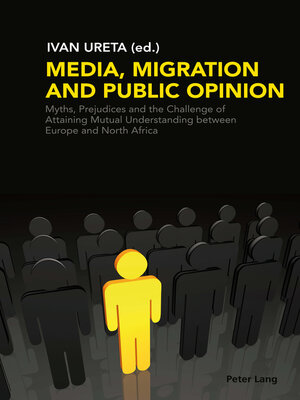Media, Migration and Public Opinion
ebook ∣ Myths, Prejudices and the Challenge of Attaining Mutual Understanding between Europe and North Africa
By Ivan Ureta Vaquero

Sign up to save your library
With an OverDrive account, you can save your favorite libraries for at-a-glance information about availability. Find out more about OverDrive accounts.
Find this title in Libby, the library reading app by OverDrive.



Search for a digital library with this title
Title found at these libraries:
| Library Name | Distance |
|---|---|
| Loading... |
Sensitive issues like migration and human mobility provoke paradigms and prejudices in public opinion. Media, Migration and Public Opinion is a collective effort of academic criticism to over-come these myths.
The main motive of this book is linked to the fact that migration, media and public opinion related issues focusing on North Africa have not been addressed properly by available literature. Against this background, the objective of Media, Migration and Public Opinion pursues three aims: Firstly, it fills a gap in the scholarly literature regarding media, political communication and migration by shifting the focus to the North African countries Morocco, Algeria and Libya. Secondly, it assesses to what extent the paradigms of the «other» and its characterization as a source of problems established in receiving countries are also present in sending and transit countries. Thirdly, the book puts North African issues in relation to European countries by presenting case-studies focused on Spain, Malta and Switzerland in order to raise commonalities and differences.
The main motive of this book is linked to the fact that migration, media and public opinion related issues focusing on North Africa have not been addressed properly by available literature. Against this background, the objective of Media, Migration and Public Opinion pursues three aims: Firstly, it fills a gap in the scholarly literature regarding media, political communication and migration by shifting the focus to the North African countries Morocco, Algeria and Libya. Secondly, it assesses to what extent the paradigms of the «other» and its characterization as a source of problems established in receiving countries are also present in sending and transit countries. Thirdly, the book puts North African issues in relation to European countries by presenting case-studies focused on Spain, Malta and Switzerland in order to raise commonalities and differences.







